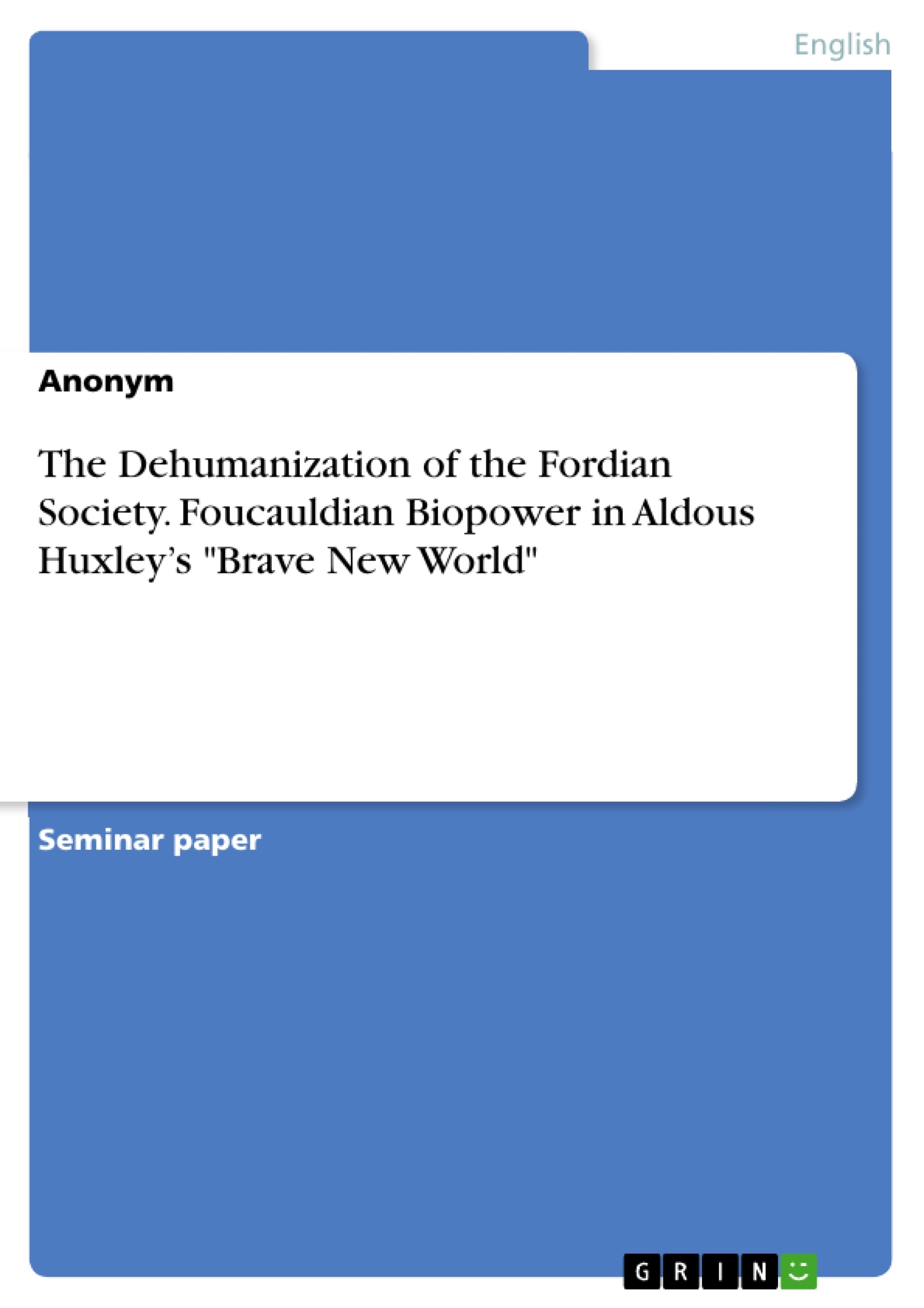In Brave New World Aldous Huxley explores a dystopian scenario of a centuries-away future where a totalitarian regime utilizes scientific advancements and disciplinary conditioning to form the human species to their vision. Huxley’s novel explores what happens when society fully cedes its power to a government that subsequently utilizes scientific advancement to improve their control over said society.
Using Michel Foucault’s power theory and his concept of biopower, I will analyze how the government of Huxley’s World State successfully exerts biopower by combining regulation of the population and conditioning of the individual to create a hamster wheel of a society that spins in an era of everlasting contentment.
I will first outline the beginnings of political power theory at the examples of enlightenment philosophers Hobbes, Locke and Rousseau and then transition into a more modern perspective on power by twentieth century French philosopher Michel Foucault. The gained insights on political power philosophy I will then apply to Aldous Huxley’s Brave New World and analyze the government’s utilization of the examined power variants and to which success they exert these.
Inhaltsverzeichnis (Table of Contents)
- Introduction
- Traditional Perspectives on Political Power
- Foucault's Power Theory
- Biopower in Brave New World
- Conclusion
- Works Cited
Zielsetzung und Themenschwerpunkte (Objectives and Key Themes)
The aim of this text is to analyze how the totalitarian regime in Aldous Huxley's Brave New World utilizes scientific advancements and disciplinary conditioning to control society. By applying Michel Foucault's power theory and the concept of biopower, the text explores the government's successful exertion of power through the regulation of the population and conditioning of individuals.
- Traditional perspectives on political power, including the social contract theories of Hobbes, Locke, and Rousseau
- Foucault's power theory and the concept of biopower
- The application of biopower in the dystopian society of Brave New World
- The government's utilization of scientific advancements to enhance control
- The role of conditioning and regulation in creating a society of perpetual contentment
Zusammenfassung der Kapitel (Chapter Summaries)
- Introduction: The introduction introduces two contemporary societal debates: the ethical debate surrounding the potential for genetic modification and the constitutional debate concerning government intervention in individual freedoms. It establishes the context for examining the dystopian scenario presented in Aldous Huxley's Brave New World.
- Traditional Perspectives on Political Power: This chapter explores the foundations of political power theory, focusing on the Enlightenment philosophers Thomas Hobbes, John Locke, and Jean-Jacques Rousseau. It analyzes their respective social contract theories, highlighting their contrasting views on human nature, the state of nature, and the role of government in protecting individual rights.
- Foucault's Power Theory: This section introduces Michel Foucault's theory of power, emphasizing the concept of biopower. It delves into how Foucault conceptualizes power as a dynamic and diffuse force that operates through institutions, practices, and discourses.
Schlüsselwörter (Keywords)
The text focuses on key terms like biopower, dystopia, social contract theory, government regulation, individual conditioning, scientific advancements, and the novel Brave New World by Aldous Huxley. These terms are central to understanding the text's analysis of the relationship between power, technology, and societal control in a fictional setting.
- Quote paper
- Anonym (Author), 2022, The Dehumanization of the Fordian Society. Foucauldian Biopower in Aldous Huxley’s "Brave New World", Munich, GRIN Verlag, https://www.grin.com/document/1248891




